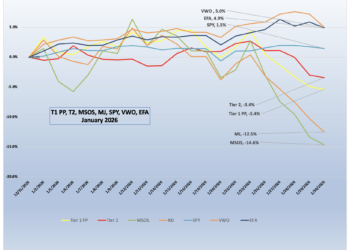California’s Agricultural Labor Relations Board (ALRB) issued its second disqualification of a cannabis union for not being “bona fide.” The National Agricultural Workers Union failed to prove that it was a legitimate labor organization, voiding the labor peace agreements it signed with cannabis operators.
“NAWU failed to provide evidence of any good faith or sincere intent to organize and represent workers in California’s cannabis industry,” wrote the ALRB in a 16-page decision on Oct. 25.
The NAWU was originally associated with the 1960s California labor movement among the state’s grape industry workers. That older version of the NAWU was eventually absorbed into the United Farm Workers of America.
This latest version of the NAWU was created in 2020 by Sean McNally, an “involuntary inactive”attorney who used to work at a law firm that defended companies from worker compensation claims. McNally currently chairs the California Commission on Health and Safety and Workers’ Compensation. He was appointed by the governor and serves as an employer representative.
The International Brotherhood of Teamsters filed a complaint with the state regarding ProTech 33 in January, which resulted in the ALRB’s precedent-setting ruling that ProTech 33 was not a bonafide union. The Teamsters followed that up with a complaint against NAWU on July 26.
NAWU responded to the Teamsters’ allegations Aug. 28, when it sent a letter to the board, claiming that NAWU was formed in January 2020, but was immediately hindered by the COVID-19 pandemic. After about three years, the NAWU claims it could not afford to remain active. They also denied the Teamsters’ claims. Essentially, the NAWU argued that although it was legitimate, the action was moot, because the union was no longer in operation.
“Before NAWU’s August 28 letter, the General Counsel subpoenaed records from NAWU. NAWU did not respond to the subpoena or produce any responsive documents. The General Counsel also subpoenaed records from the Licensees. None of the Licensees responded to the subpoenas or produced responsive records,” the ALRB’s ruling said.
The State of California recently released data on labor peace agreements, which licensed cannabis operators with 20 or more employees are required to obtain. According to those records, NAWU signed LPAs with 18 license holders. The Teamsters’ complaint named 12 licenses associated with Caliva and Coastal Dispensary, whose parent company reportedly lists hip hop mogul Jay-Z among its investors.
The ALRB reached out to cannabis operators that signed with NAWU to get a sense of the organization’s activities, but the state was unable to get any proof to legitimize the NAWU.
The licensees responded to the complaint on Aug. 31 and said they “complied with all obligations necessary to apply for, receive, and maintain a license to conduct commercial cannabis activities, including entering into LPAs with NAWU,” the ALRB said. “The Licensees deny that they ‘dominate’ NAWU, as alleged by the Teamsters.”
However, “The Licensees did not provide any evidence and authority upon which they rely in asserting NAWU is a bona fide labor organization as ordered by the Board,” it said.
In the ALRB’s previous ruling against ProTech 33, the board determined that the Medical and Adult Use Cannabis Regulation and Safety Act’s definition of a “bona fide union” refers to an organization with “a sincere and good faith intent to organize and represent employees as a collective bargaining representative, including the capacity or ability to do so.”
“This reflects the Legislature’s intent in requiring licensees enter into LPAs with labor unions that truly exist for the purpose of organizing and representing employees, as opposed to employer-sponsored or other groups that may nonetheless meet the statutory definition of a ‘labor organization’ under the National Labor Relations Act or Agricultural Labor Relations Act,” it said in the NAWU ruling.
“NAWU did not provide any evidence to support its claim that it made efforts to organize and represent cannabis workers, such as literature, brochures, or flyers distributed to the workers. NAWU failed to show that it had any meaningful online presence where individuals could have learned about the organization.”
The ALRB said it is “mindful” that new or grassroots labor organizations must not be excluded. But it explained that start-up or grassroots unions “typically involve organic, employee-led movements epitomizing a true exercise of employees’ right to self-organization,” such as the Amazon Labor Union in Staten Island, N.Y. It added that the National Labor Relations Board’s precedent further reflects that grassroots unions begin with or rely on the employees themselves.
“In contrast, NAWU appears to have been established by an individual, McNally, without any connection to organized labor or actual workers. It was apparently a ghost entity whose sole purpose was to enter into LPAs with cannabis employers so they could meet licensing conditions,” the ALRB said.
In a footnote, the ruling also states that NAWU has failed to prove that it has actually ceased operations.
“The record contains no evidence demonstrating NAWU has ceased operating, including any effort to withdrawal [sic] from any of its LPAs or notify any employer it will not renew an expired LPA. In fact, the Licensees’ answer – filed after NAWU asserted it is shutting down and withdrawing from all LPAs – makes no mention of NAWU’s claimed cessation of activity. As of the date of this decision NAWU remains listed on the DCC’s web site as having several unexpired LPAs.”
NAWU is one of 10 unions in California that signed LPAs with cannabis operators that have come under scrutiny from the Teamsters and United Food and Commercial Workers unions.












